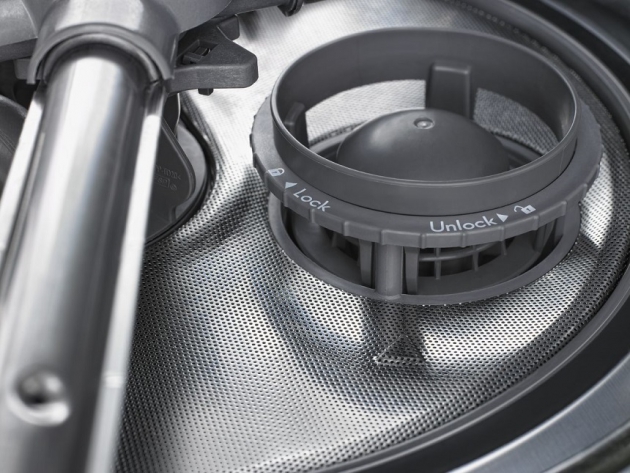Dishwasher Wash System Direct Feed or Filter Better
The Dishwasher Conundrum: Do You Need a Filtration or Hard Food Disposer System?
Published: September 3, 2021

By
When you shop for your next dishwasher, you will quickly realize that there are a lot of features available. Do you need a quieter machine? Which brand has the best energy efficiency? Is a third rack a must? These and other questions are the more obvious queries but a deeper concern may be the choice between a filtration or hard food disposer system. Let's take a look at the differences between these two systems to ensure that you're making an informed purchasing decision.
A Brief Overview
At a glance, you may think that a filtration and hard food disposer system are very different but they both fulfill the same need. Although they are very distinct approaches they are both concerned with the removal of food particles from inside your dishwasher. If you don't understand the difference it is possible to use your dishwasher in the wrong way. This can lead to a lack of performance and repeated cycles that waste energy. Let's take a look at each system in a little more detail.
How Does a Dishwasher Filtration System Work?
A dishwasher filtration system collects the food particles that can accumulate at the basin at the base of the tub. The more advanced up-to-date models have an ultra-mesh filter that actually emulsifies the food into extremely tiny particles. Once the food particles have been reduced to this state, they can be rinsed into the drain through the kitchen pipe. This means the dishwasher water will be clean and more effective for cleaning the dishes. A more basic dishwasher filtration system can leave behind some residue and manual cleaning will be required. Regular cleaning every 2-4 weeks may be needed but the lower price point will make this an attractive option for budget conscious buyers.
How Does a Dishwasher Food Disposer Work?
A dishwasher food disposer works in a similar way to a sink garbage disposal system. The hard food disposer will pulverize any food particles in your dishwasher to make them easier to handle. Then they are removed from the water before it is recirculated back into the appliance to ensure that it's clean. This system is maintenance-free, there is no need to clean the filter manually. As an added advantage, this system keeps the water puppies and spray arms free of food debris too. When you invest in a dishwasher with this type of system you will notice superior performance and clogs will be very rare.
Which is the Best System?
The best way to get improved performance from any appliance is to read the owner's manual and learn how to use the various settings. Many dishwasher experts agree on the use of rinse aid for each cycle and don't recommend rinsing for dinnerware. This protects the dishes from detergent enzymes that can damage the surfaces. But, when you're choosing a new dishwasher there are some additional considerations.
Most manufacturers have switched production to dishwashers that have manual filters. The main reason for this is that they are quieter than dishwashers equipped with a disposer. Although inline drive motors and stainless-steel tubs can lower noise levels, the noise of a hard food disposer system is too loud for many people. The maintenance-free nature of a disposer system and the prevention of clogs will be attractive features for others. Remember that a clogged dishwasher can decrease the water pressure inside the appliance leading to a lack of cleaning power. Running extra cycles wastes time and raises your energy bills.
Ultimately the decision will come down to the initial higher investment in a dishwasher that has a hard food disposer system. If you can tolerate the elevated noise levels this type of dishwasher delivers a great deal. If you're interested in a new dishwasher, take a look at our extensive range of models.
Source: https://uakc.net/blog/the-dishwasher-conundrum-do-you-need-a-filtration-or-hard-food-disposer-system/
Post a Comment for "Dishwasher Wash System Direct Feed or Filter Better"